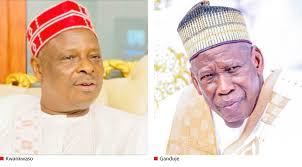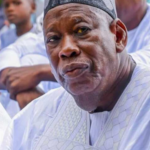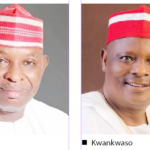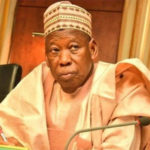The feud between former Governor Abdullahi Ganduje and former Governor Rabiu Musa Kwankwaso of Kano State has resulted in a battle of vendetta and attempts to crush perceived enemies.
Many find it incomprehensible how the two former running mates who governed Kano State as governor and deputy and shared good moments could become not just bitter rivals, but malicious, hate-filled and irreconcilable enemies.
Most faults are attributed to Ganduje because it is expected that power and strength should confer compassion, humility, a sense of pity and control. These traits are essential to pass the tests that come with the privilege of high authority, including the choice to oppress or to act with benevolence.
Consequently, public sympathy often favours those who have lost power or position before their crises become public, thus making them seem less arrogant, rigid and egotistical.
- Kano emirates: Lawyers insist court ruling affirmed Bayero’s seat
- North West security summit begins tomorrow in Katsina
However, many who know Kwankwaso describe him as similar to Ganduje in terms of rigidity, arrogance, self-validation and unforgiving nature.
This similarity explains why the two “kings” can no longer maintain a friendship.
It is now evident that Ganduje alone is not the problem, and Kwankwaso may be an even greater threat to the peace that has eluded the former allies.
Governor Abba Yusuf and Kwankwaso are increasingly seen as villains rather than heroes. Since Yusuf assumed office, he has not only exhibited attitudes previously condemned by the public, but also done worse under the mentorship of his in-law and godfather, Kwankwaso.
Governor Yusuf is perceived as ignoring governance to nurse vendetta and hatred. He started by demolishing a roundabout built with taxpayers’ money not personally owned by Ganduje. He has also manipulated the House of Assembly to amend the law to dethrone Emir Aminu Bayero and dismantle the five emirates created by Ganduje, thereby affecting families and communities without any offence. This contrasts with Emir Sanusi II’s issue, who was charged with insubordination and extravagance that amounted to corruption within the Kano Emirate.
Governor Yusuf, like Ganduje, is now disobeying court orders and demolishing public property to target an enemy, wasting public funds during economic hardship while claiming they cannot pay a minimum wage of N60,000.
The question arises; how do Governor Yusuf and Kwankwaso believe their actions make them better than Ganduje? What morals and values are these leaders promoting for people to respect and create a lasting legacy of sacrifice like late former Governor Abubakar Rimi and Nelson Mandela?
Why is Sanusi seen as wanting to repay evil with evil, inflicting the same kind of humiliation, pain and agony he never wanted for himself despite God’s extraordinary grace and mercy on his life?
It is fitting to conclude with the prophet’s words that it is not the beginning that should define a man but how he ends in the position of power or in every life affair.
Bagudu Moh’d is a freelancer and wrote via [email protected]

 Join Daily Trust WhatsApp Community For Quick Access To News and Happenings Around You.
Join Daily Trust WhatsApp Community For Quick Access To News and Happenings Around You.


